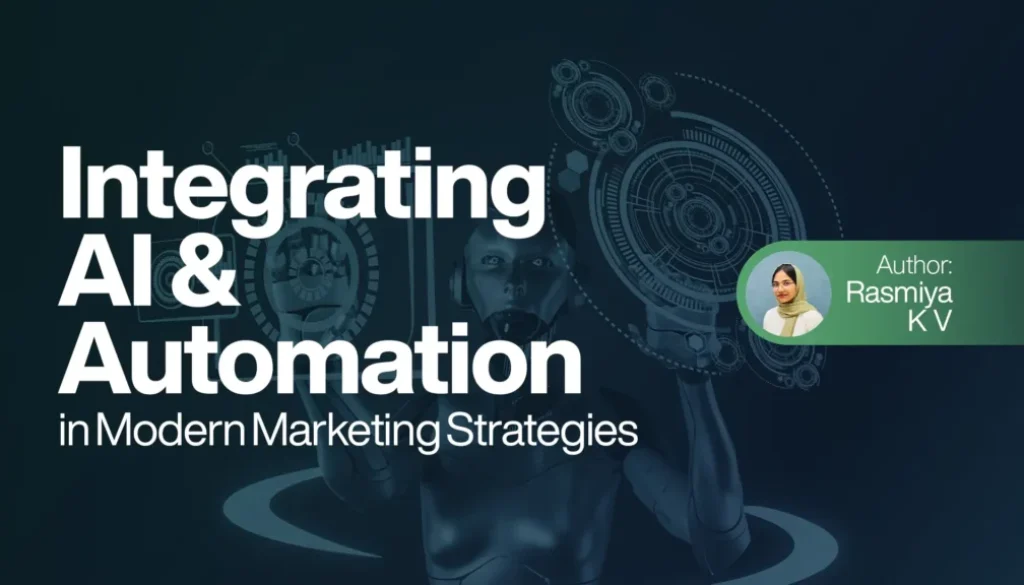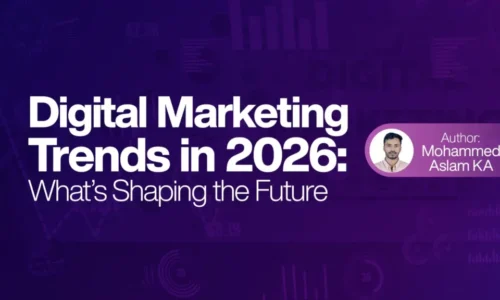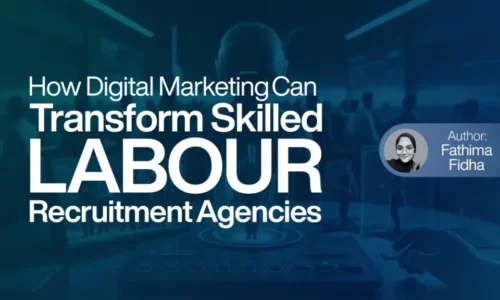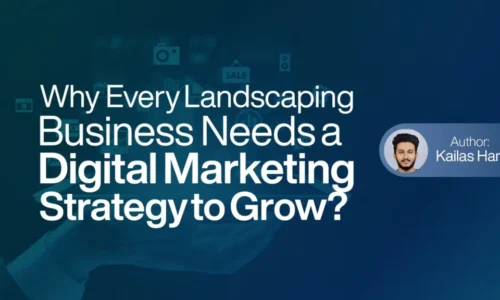Integrating AI and Automation in Modern Marketing Strategies
In today’s rapidly changing digital environment, marketing is evolving more quickly than ever—and the biggest shift is the emergence of Artificial Intelligence (AI) and automation. By using tools such as personalised ads, chatbots, and predictive analytics, AI and automation are changing the way businesses interact with customers.
Table of Content
To keep your marketing in tune with the environment and competitive landscape, you must understand how to utilise AI and automation. This is an exploration of how we can use AI and automation to create smarter, faster, and more effective marketing.
1. What is AI and Automation in Marketing?
Without getting too technical, AI (Artificial Intelligence) refers to machines or software that can think and learn from data, and automation refers to using technology to permanently perform repetitive tasks, without manual work.
When you put these together, you can help marketers save time (computers are better at performing repetitive tasks) – reduce human error (computers don’t have human biases) – and provide more personalised experiences (computers analyse data to make recommendations).
For example, AI tools can assess the behaviour of your customers and make product recommendations. And then automation tools can automatically send those recommendations via email – without manual work.
2. More Intelligent Targeting of Audience
No longer do you have to guess who your audience is. AI now helps identify your ideal customers based on real data: demographics, geography, interests, and behaviours online.
- AI tools, such as the Google Ads Smart Bidding tool, automatically optimise ads throughout the campaign to reach your target audience,
- Social media platforms utilise AI to show your content to the people within your audience who will be most likely to engage.
Overall, this means not only is your marketing communication more relevant, but it also means that your budget is going further.
3. Personalised Experiences for Customers
Today’s consumers expect brands to really know them. AI enables this to occur.
- E-commerce websites utilise AI to recommend products based on previous browsing habits.
- Email automation platforms are using AI to personalise communications by name, purchases, or preferences.
- Chatbots give instant 24/7 support for answering questions and guiding customers through a process.
Personalised marketing establishes deeper relationships and improves conversions to your advertisement or marketing campaign.
4. The Easier Content Creation
AI-powered tools can assist us in creating and optimising content.
- Tools such as ChatGPT, Jasper, and Copy.ai help create blog posts, captions, and ad copy using existing templates (whether visually designed or written).
- AI can analyse which headlines or visuals get the most outreach and suggest better wording or imagery to create increased outreach.
This will not inhibit creativity, but rather enhance it by freeing up time and giving the creator data-driven insights as well.
5. Automating Repetitive Tasks
The marketing profession is rife with time-consuming tasks such as scheduling social media posts, sending email blasts, or analysing rates or trends, which take up too much time. Automation helps you get rid of them.
- You can use Hootsuite or Metricool to schedule social media posts.
- Many email distribution platforms, such as Mailchimp or HubSpot, also help with automated email distributions.
- Use CRM tools such as Salesforce to automatically track leads for you.
With the automation business offering ease, the marketer will have more time to place emphasis on strategy and creativity.
6. Forecasting Customer Activities
AI can ingest and analyse data to make forecasts about customers’ potential future behaviour.
- Predictive analysis identifies which leads are most likely to buy.
- AI-based tools recognise patterns in customer activity (like times customers are most active or when they might unsubscribe).
- This helps businesses plan campaigns at the optimal time and in conjunction with the best campaign messaging.
Rather than just being reactive, marketers can now be proactive.
7. Enhanced Decision Making with Data
AI has a distinct advantage–it can help transform data into convincing insights.
- It helps marketers understand what’s working and what’s not.
- AI-based dashboards provide marketers with real-time visibility into the performance of their campaigns.
- All of this enables marketers to make faster, smarter, better-informed decisions without guessing.
In a competitive landscape, especially in a city like Dubai, these insights can be incredibly valuable.
8. The ‘Human’ Aspect is Still Important
Although AI and automation offer the potential to provide efficiencies in marketing, human creativity and emotion will still be irreplaceable. Technology can provide data analyses: people create stories that resonate.
A balance is the best of both worlds: employing technology for data insights and automation for marketing tasks while retaining human creativity at the centre of your brand messaging.
Final Thoughts
Artificial intelligence and automation are not just fads; they are the future of marketing. They assist companies in saving time, identifying their target audience, customizing experiences, and making better decisions.
To create a truly contemporary marketing strategy, start small:
- Automate your social media or email endeavours.
- Use AI instruments to analyse your audience.
- Increase gradually as you see results.
Keep in mind, the objective is not to eliminate humans. It is to enable marketers to work smarter, not harder. With AI and automation on your team, your marketing strategy will be faster, smarter, and more effective than it has ever been.
Author Info
Rasmiya KV, a Freelance Digital Marketing Analyst in Dubai.
Learner of CDA Digital Marketing Academy in Kerala.




